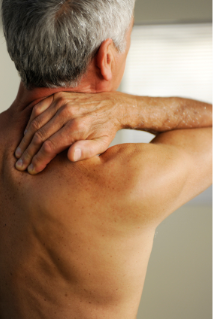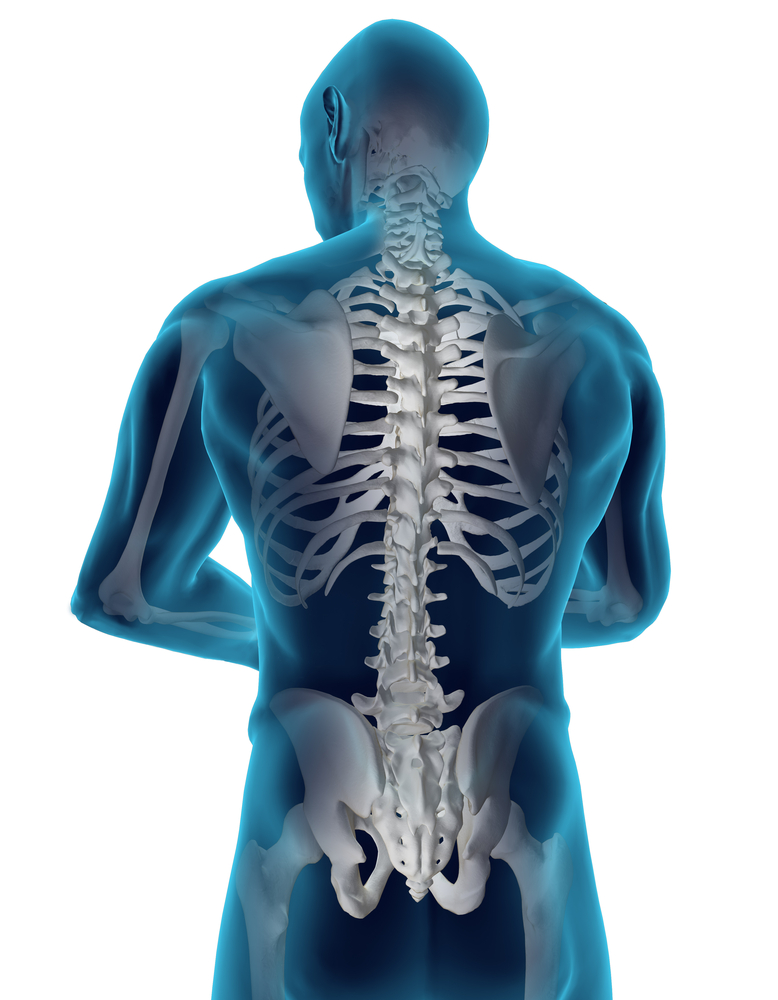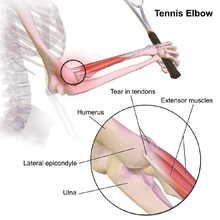CONDITIONS WE TREAT
Back or neck pain
 The spine is formed of a series of bones, discs, soft tissues and nerves. Its main roles are to support the bodies weight, protect the delicate spinal cord and for muscle attachment. It is a complex structure and although extremely well engineered for its role a common cause of pain and dysfunction.
The spine is formed of a series of bones, discs, soft tissues and nerves. Its main roles are to support the bodies weight, protect the delicate spinal cord and for muscle attachment. It is a complex structure and although extremely well engineered for its role a common cause of pain and dysfunction.
Pain of the lower back and neck are rarely due to a serious health problem but can cause significant discomfort and distress as well as result in loss of earnings or the ability to go about your normal everyday activities.
At Citisport we believe that the early assessment and treatment of your back or neck pain will provide the best outcome for you in reducing the risk of ongoing issues. We are also able to help with longstanding problems by combining ‘hands on’ treatment and prescribing exercise.
Sciatica
 The sciatic nerve is the largest nerve in the body. It is formed from the nerves that come off the spinal cord in the back. Sciatica can cause problems that include pain, tingling, numbness and weakness. The pain is felt anywhere in the affected leg but most commonly the back or the side of the thigh.
The sciatic nerve is the largest nerve in the body. It is formed from the nerves that come off the spinal cord in the back. Sciatica can cause problems that include pain, tingling, numbness and weakness. The pain is felt anywhere in the affected leg but most commonly the back or the side of the thigh.
Sciatica is usually caused by a mechanical dysfunction such as a disc prolapse, (slipped disc). In most incidents it will heal itself with the help of physiotherapy but there are occasions when an epidural injection may be necessary. This would be if the pain was severe and not improving with treatment of there was significant numbness or weakness. An epidural is done at a hospital by a highly experienced anaesthetist and involves a corticosteroid being injected into back.
It is generally a very safe and comfortable procedure. Following an epidural a patient usually has a significant reduction in their pain levels which will allow them to work at their exercises in order to gain maximal benefit from the procedure.
Headaches
 Headaches can be located anywhere in the head and range from relatively mild the severe pain. They can have many causes including migrane, cluster headaches and on very rare occasions are a sign of something more serious such as a bleed or tumour. The most common causes of headaches is dehydration, lack of sleep, posture and tension in the neck and surrounding muscles. This can account for over 70% of all headaches and can result in loss of time at work and significantly affect a persons ability to function normally.
Headaches can be located anywhere in the head and range from relatively mild the severe pain. They can have many causes including migrane, cluster headaches and on very rare occasions are a sign of something more serious such as a bleed or tumour. The most common causes of headaches is dehydration, lack of sleep, posture and tension in the neck and surrounding muscles. This can account for over 70% of all headaches and can result in loss of time at work and significantly affect a persons ability to function normally.
When headaches are caused by posture or tension we are able to work with you to improve your posture and relieve any tension caused by tight muscles or stiff joints in your neck.
Magnesium plays a vital role in muscle function and a lack of magnesium is sometimes partly responsible for muscle tension. You can safely increase the amount of magnesium in your body by taking a magnesium supplement or bathing in Epsom Salts which are an excellent source of magnesium and is absorbed through your skin.
Shoulder Pain
 Shoulder pain is usually the result of a road traffic accident, (RTA) but can also result from a fall or taking part in sports such as rugby or boxing. It occurs when a sudden impact forces the neck into a forward, backward or sideways position. Pain from the neck being forced into a forward position is more common and the reduction of hyperextension injuries in largely due to the compulsory instillation of headrests in modern cars. This means that while the neck can still be forced forward at the point of impact but the backward position is limited by the headrest.
Shoulder pain is usually the result of a road traffic accident, (RTA) but can also result from a fall or taking part in sports such as rugby or boxing. It occurs when a sudden impact forces the neck into a forward, backward or sideways position. Pain from the neck being forced into a forward position is more common and the reduction of hyperextension injuries in largely due to the compulsory instillation of headrests in modern cars. This means that while the neck can still be forced forward at the point of impact but the backward position is limited by the headrest.
Symptoms of shoulder pain can range from relatively mild to servere and can take a few days, weeks or in severe cases months to improve. Symptoms include:
 Pain in the neck or across the top of the shoulders.
Pain in the neck or across the top of the shoulders.
 Lack of movement of the neck which is limited by stiffness or pain or both.
Lack of movement of the neck which is limited by stiffness or pain or both.
 Headaches
Headaches
 Dizziness
Dizziness
Very rarely more serious symptoms can occur including visual disturbances and vomiting. If this is the case a patient should attend A&E.
Treatment for whiplash can include gentle movement of the neck, the physiotherapist mobilising the joints in your neck and massaging the muscles and acupuncture. You will also be given some exercises to do.
Shoulder pain – including frozen shoulder
Shoulder pain is often caused by inflammation of the tendons around the shoulder. The shoulder is an extremely mobile joint but because of this its stability is compromised. The group of four muscles that work to stabilise the shoulder and hold the head of your upper arm bone in its socket during movement are collectively known as the Rotator Cuff. The tendons of the Rotator Cuff are positioned all around the shoulder but one in particular travels between two bones. The under surfaces of these bones can become roughened and so therefore cause irritation and impingement of the tendon causing it to become inflamed and swell.
Rotator Cuff injuries are often caused by repeated overhead movement at a sport, such as bowling in cricket, or as part of your job, for example, spending a lot of time reaching up as a decorator may do.
Injuries are characterised by pain that is usually felt in the upper arm, reduced range of movement, for example, not being able to get hand up behind your back. Weakness can occur if the patient has sustained a tear to the Rotator Cuff.
A frozen shoulder (adhesive capsulitis) is characterised initially by pain in the shoulder, which can be quite severe, and then a tightening of the structures around the shoulder. The cause of a frozen shoulder is not well understood but we now think it is due to a change in blood flow around the shoulder. It can also happen following surgery on the shoulder or an injury (traumatic capsulitis). Patients with diabetes are more prone to frozen shoulder, again we are not sure why.
Frozen shoulder normally lasts between 18 and 24 months but there are cases that go on for up to 5 years. During the initial stages when the shoulder is inflamed, and can be extremely painful, acupuncture can give relief and the patient may also need to visit their GP to discuss analgesic medications. As the condition progresses the pain eases and the shoulder loses range of movement. This is when we would work on mobilising the shoulder with physiotherapy and an exercise prescription for the patient to do regularly at home. Finally as movement returns the patient then needs to work on strengthening the shoulder.
If, despite physiotherapy and analgesia the patient is still in significant pain then a steroid injection can be given. This will rapidly reduce the inflammation in the shoulder and give pain relief. Another treatment that is used to treat frozen shoulder is Hydrodilatation. This treatment involves an injection of local anaesthetic, contrast medium and cortisone into the shoulder capsule and then under x-ray guidance sterile saline solution is injected into the shoulder to stretch the joint capsule and breakdown the adhesions which are characteristic of the frozen shoulder.
Tennis / Golfers elbow
 Tennis elbow, (lateral epicondylitis), is characterised by pain on the outside of the elbow. The pain is not only caused by tennis, as the name suggests, but also by any activity where there is overuse of the wrist and forearm muscles. The muscles that extend the wrist and fingers are located in the forearm and share a tendon which is known as the common extensor tendon.
Tennis elbow, (lateral epicondylitis), is characterised by pain on the outside of the elbow. The pain is not only caused by tennis, as the name suggests, but also by any activity where there is overuse of the wrist and forearm muscles. The muscles that extend the wrist and fingers are located in the forearm and share a tendon which is known as the common extensor tendon.
The common extensor tendon attaches to the bone on the outside of the elbow and it is this attachment point that becomes damaged and inflamed in tennis elbow.
Golfers elbow, (medial epicondylitis), is a similar condition but involves the muscles that flex the wrist and fingers. Again the muscles share a tendon known as the common flexor tendon which attaches on to the bone on the inside of the elbow.
The treatment for both tennis and golfers elbow usually involves a period of rest from the aggrevating activity. If this fails to ease the pain then physiotherapy can be helpful and may include the following:
1) Soft tissue treatment techniques to increase blood flow, stimulate healing and reduce inflammation.
2) Electrotherapy such as ultrasound to stimulate healing and ultimately reduce inflammation.
3) Acupuncture
4) Advice on supports and braces which can enable you to continue with activity.
5) Advice on stretching and strengthening.
Tendon or ligament sprains or strains
We have looked at some of the more common soft tissue injuries above but we are also able to help with many different tendon or ligament strains including Achilles tendonitis and sprained ankles.
Treatment for these injuries tends to be carried out in two phases, the first being to settle the acute phase of the injury where pain and swelling are likely to be the main issues. This is then followed by rehabilitating the patient with the aim being to strengthen and not only return the patient to their previous level of function but to also minimise the risk of a repeat injury.
Knee Pain
 Knee pain is very common and can be caused by an overuse injury such as patella tendonitis, an acute injury such as those caused by a twist while skiing or playing football or by degenerative changes in the knee. Overuse injuries are most often seen in people who take part in a sport, such as running, or who do a job that involves a large amount of kneeling, such as a plumber or gardener.
Knee pain is very common and can be caused by an overuse injury such as patella tendonitis, an acute injury such as those caused by a twist while skiing or playing football or by degenerative changes in the knee. Overuse injuries are most often seen in people who take part in a sport, such as running, or who do a job that involves a large amount of kneeling, such as a plumber or gardener.
Acute injuries most often happen as the result of a fall or contact during sport. One of the most common acute injuries to the knee is ligament damage such as a rupture of the Anterior Cruciate Ligament. These injuries may require an MRI to see how much damage has occurred and the opinion of an Orthopaedic Surgeon as to whether the patient would have a better long-term prognosis if the ligament was repaired before commencing physiotherapy.
Degeneration of the knee joint is very common and can often be managed by patients looking after themselves by doing regular exercises to strengthen around the knee and also trying to keep their weight at an acceptable level. We appreciate that this isn’t always an easy thing to do as we all lead busy lives that don’t always allow time for ourselves but we will support you by providing treatment.
We are always more than happy to have a chat on the phone if you are not sure whether we would be able to help you or you can email us at enquiries@citisport.co.uk.
WE ARE REGISTERED









 Citisport Physiotherapy,
Citisport Physiotherapy,  01372 743 166
01372 743 166  enquiries@citisport.co.uk
enquiries@citisport.co.uk 